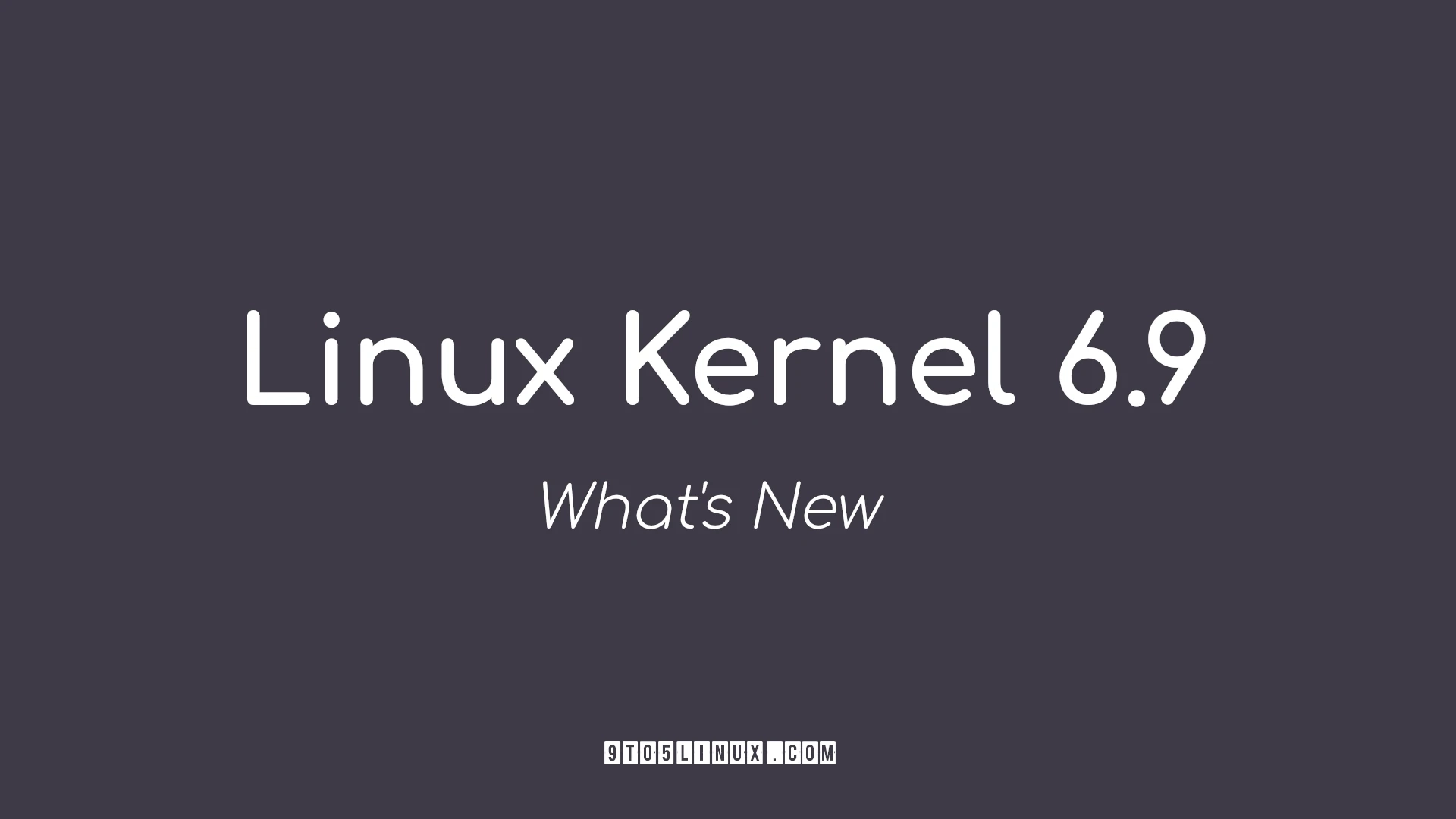Linus Torvalds announced today the release and general availability of Linux kernel 6.9, the most recent stable version of the Linux kernel that introduces several fresh features and improved hardware support.
The highlights of Linux kernel 6.9 include Rust support on AArch64 (ARM64) architectures, support for the Intel FRED (Flexible Return and Event Delivery) mechanism for enhanced low-level event delivery, support for AMD SNP (Secure Nested Paging) guests, and a new dm-vdo (virtual data optimizer) target in device mapper for inline deduplication, compression, zero-block elimination, and thin provisioning.
Furthermore, Linux kernel 6.9 supports the Named Address Spaces feature in GCC (GNU Compiler Collection) that enables the compiler to optimize per-CPU data access more efficiently. It also offers initial support for FUSE passthrough allowing the kernel to serve files from a user-space FUSE server directly, includes support for updating the Energy Model dynamically at runtime, and reveals a new LPA2 mode for ARM 64-bit processors.
The Rust language has been upgraded to version 1.76.0 in Linux 6.9. It also restructures the locking mechanism in the GPIO subsystem, includes support for the ORC stack unwinder, kernel live patching for the LoongArch architecture, mitigates the RFDS (Register File Data Sampling) vulnerability affecting Intel Atom processors, and introduces support for the membarrier() system call for the RISC-V architecture.
Other noteworthy changes in Linux kernel 6.9 include LZ4 compression support for the hibernation image creation and loading code, support for NFSD administrators to revoke NFSv4’s open and lock state, subvolume children btree support, improved journal pipelining, discard path improvements, improved directory structure checking, and new mm helper in the bcachefs file system introduced in Linux kernel 6.8.
The F2FS (Flash-Friendly File System) flash file system received zoned block device support, per-file compression, and enhanced data recovery after a sudden power cut on a zoned block device, the exFAT file system received improvements to directory synchronization performance, the EXT4 file system received an inode flag for atomic writes and online resize improvements, and the Btrfs file system received more zoned mode fixes and minor performance optimizations.
On top of that, the memory-management performance has been improved, the perf tool received several new features, BPF token support was added for delegating a subset of BPF subsystem functionality from privileged system-wide daemons like systemd, and ARM 64-bit processors received initial support for the contiguous PTE bit to allow the TLBs to map a range larger than a single PTE if the range is physically contiguous.
Linux 6.9 brings new networking enhancements such as TCP_NOTSENT_LOWAT support in MPTCP, ICMP Error messages forwarding in IPSec, independent control state machine for bonding according to IEEE 802.1AX-2008 5.4.15, support for multiple disjoint MCTP networks on hosts, new 2.5GE and 5GE Energy Efficient Ethernet (EEE) link modes, AMSDU support under SPP (signaling and payload protected), and wider-bandwidth OFDMA support.
The updated Linux also carries new drivers for numerous devices including the ChromeOS’s Embedded Controller, Marvell’s Octeon PCI Endpoint NIC VF, RENESAS’s FemtoClock3 Wireless clock generator, Qualcomm’s Snapdragon X Elite (X1E80100) processor, Samsung’s various Bluetooth devices such as Wireless Action Mouse, Keyboard, GamePad, Book Cover, Universal Keyboard, and HOGP Keyboard, Snakebyte’s gamepads, and Goodix Berlin’s I2C and SPI touch controllers.
Furthermore, Linux 6.9 introduces more AMD IP blocks for compatibility with upcoming AMD hardware, Intel Xe graphics driver updates, Displayport tunneling support specific for the Intel i915 graphics driver, HDMI support tailored for the Rockchip RK3128 processor, SoundWire support for AMD ACP 6.3 systems and DSPless mode support for Intel Soundwire systems. It also offers specific laptop features like battery charge control for Fujitsu laptops and refresh rate key support for Lenovo IdeaPad laptops.
Last but not least, Linux kernel 6.9 marks the EXT2 file system as being deprecated as it’s not (and it won’t be) patched against the Year 2038 problem. While you can still use EXT2 in Linux kernel 6.9, the Linux kernel developers recommend avoiding it. On the same note, Linux 6.9 finally removes the old NTFS filesystem implementation, defaulting to NTFS3 for supporting NTFS filesystems.
Linux kernel 6.9 will be a short-lived branch supported for only a couple of months. It will be succeeded by Linux kernel 6.10, whose merge window has now been officially opened by Linus Torvalds. Linux kernel 6.10 is expected to be released in mid or late September 2024. Meanwhile, you can download Linux kernel 6.9 right now from Linus Torvalds’ git tree or the kernel.org website.
Last updated 2 hours ago
